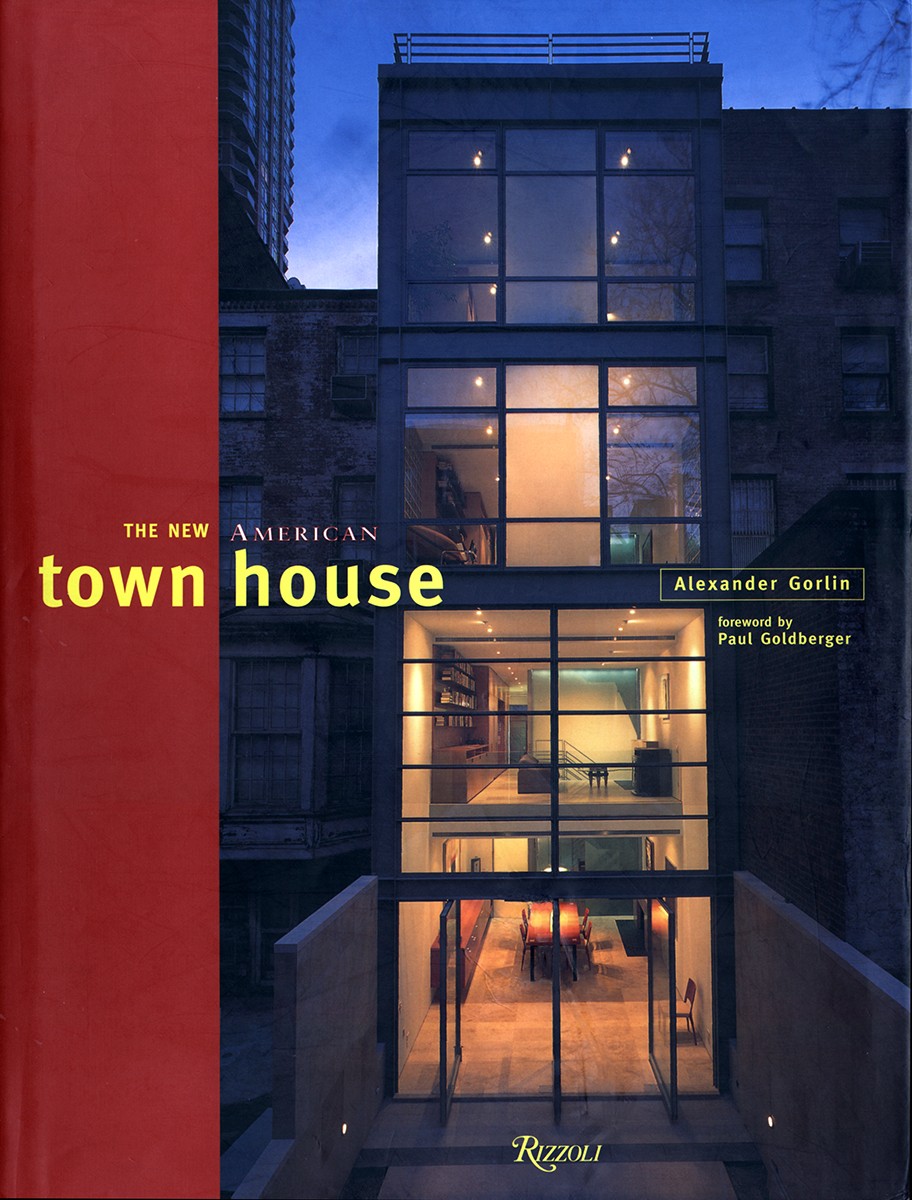

Published by Rizzoli, February 5, 2000
220 pages
Simultaneously defining and defined by its surroundings, the town house-- as one of the basic building blocks of the city-- has emerged at the close of the twentieth century as a symbol of architectural innovation and refinement. At one time the bastion of Park Avenue society, the American town house has now been embraced by a broader group of people: families with small children, single urban professionals, and retired couples. Drawn between the antipodes of architectural precedent and originality, the modern town house enhanced the urban landscape through both its break from and adherence to the delimitations of the typology. Within its five-story frame and two parallel walls exquisite solutions to the constraints of the form take place. Sweeping stairways, moonlit loggie, and seemingly boundless atria all comprise some of the newly realized fantasies of these structures. The playful interchange between public and private spaces, living and work quarters, and interiors and exteriors are all part of the new rhetoric of the town house.
Ranging from sites in New York, Chicago, Denver, Philadelphia, Seaside, Florida, and Los Angeles, each of the buildings featured in The New American Town House represents an eloquent contribution to the form. From the funky, gritty streets of Greenwich Village to the quiet sunny walks of San Francisco, the book explores the cutting-edge designs of twenty-six recently built town houses by such celebrated young architects as Tod Williams and Billy Tsien, Mark Mack, Dan Solomon, Stanley Saitowitz, Dirk Lohan, and Alexander Gorlin. Each project is extensively illustrated with full-color and black-and-white photography, plans and drawings, providing a striking presentation of the elegance and stylistic distinction of the houses. Alexander Gorlin includes an insightful essay on the history of the town house from its origins in Pompeii to recent urban dwellings designed by twentieth-century architects. The esteemed architecture critic Paul Goldberger discusses new developments in the genre during this period of resurgence and what they portend.